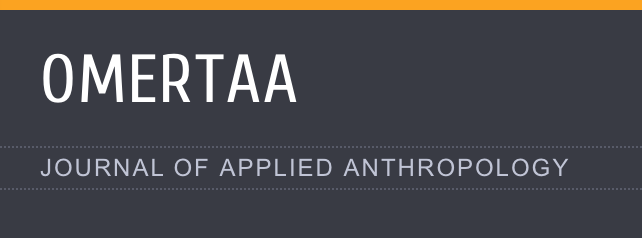Making it Work?
The Issue of Culture(s) in Development Practice
Development theories were traditionally based on the idea of the objective truth and a top-down expert-led approach thereby virtually ignoring the ways in which people negotiate changes and initiate their own. The 1990s post modernist era rejects the principle of the single, objective account of reality, and rather than adhering to grand universal discourses, the new approach relies on a multiplicity of voices as its cornerstone. In his 1997 book "Whose Reality counts? Putting the first last" Robert Chambers argued that the conception of development projects, hitherto almost exclusively designed by external technical experts, should on the contrary, be based on local knowledge. Given that well-being may mean different things in different places to different people at different times, problems and solutions alike should be elicited from local people through participatory research methodologies in order for development projects to be effective and bring about tangible results. This new approach extensively draws on traditional anthropological methods and insights, such as informal conversations and relaxed observations, the importance of the positioning of the researcher through attitude and behavior, and the potential value of indigenous knowledge.
For the past two decades, the development industry has increasingly been calling upon social scientists (in particular anthropologists) as cultural “brokers” to identify and understand local cultural and social factors, which are often seen as potential barriers to the success of development projects. Yet, other development workers may explicitly state that projects should not interfere with “traditional” cultures for fear of disrupting socio-cultural structures implicitly considered as “closer to nature”. Whichever the interpretation of the role culture plays development projects, the fact remains that contemporary anthropology’s emphasis on culture as contested, flexible, fragmented and deterritorialized is hard to reconcile with development practitioners’ concern to design replicable projects and stable decision-making frameworks. As a result of these diverging notions on development and culture, development work is becoming increasingly eclectic. This edited issue on development and culture illustrates through recent case studies the field of tension between on the one hand, the recent paradigm of “incorporating culture” into development project design, and on the other hand, the lived experiences of the project beneficiaries as well as of development practitioners in the implementation of these “culture sensitive” projects.
Roos Willems, March 2009
The Issue of Culture(s) in Development Practice
Development theories were traditionally based on the idea of the objective truth and a top-down expert-led approach thereby virtually ignoring the ways in which people negotiate changes and initiate their own. The 1990s post modernist era rejects the principle of the single, objective account of reality, and rather than adhering to grand universal discourses, the new approach relies on a multiplicity of voices as its cornerstone. In his 1997 book "Whose Reality counts? Putting the first last" Robert Chambers argued that the conception of development projects, hitherto almost exclusively designed by external technical experts, should on the contrary, be based on local knowledge. Given that well-being may mean different things in different places to different people at different times, problems and solutions alike should be elicited from local people through participatory research methodologies in order for development projects to be effective and bring about tangible results. This new approach extensively draws on traditional anthropological methods and insights, such as informal conversations and relaxed observations, the importance of the positioning of the researcher through attitude and behavior, and the potential value of indigenous knowledge.
For the past two decades, the development industry has increasingly been calling upon social scientists (in particular anthropologists) as cultural “brokers” to identify and understand local cultural and social factors, which are often seen as potential barriers to the success of development projects. Yet, other development workers may explicitly state that projects should not interfere with “traditional” cultures for fear of disrupting socio-cultural structures implicitly considered as “closer to nature”. Whichever the interpretation of the role culture plays development projects, the fact remains that contemporary anthropology’s emphasis on culture as contested, flexible, fragmented and deterritorialized is hard to reconcile with development practitioners’ concern to design replicable projects and stable decision-making frameworks. As a result of these diverging notions on development and culture, development work is becoming increasingly eclectic. This edited issue on development and culture illustrates through recent case studies the field of tension between on the one hand, the recent paradigm of “incorporating culture” into development project design, and on the other hand, the lived experiences of the project beneficiaries as well as of development practitioners in the implementation of these “culture sensitive” projects.
Roos Willems, March 2009
Articles
Toward a theory of engagement
Development anthropology in a rural river town in Iowa, USA
by Barbara J. Dilly
Brokering unequal relations of power through identity politics in Ecuadorian northern highlands
by Maria Moreno
Engaging local Communities in achieving the Millennium development goals in Sub-Saharan Africa
by Mary Nyasimi, Joseph Okanga, Patrick Mutuo and Jessica Masira
applying academic theory to witnessed organisational behaviour
by Michael Schueber
The effectiveness of participatory approaches in clientist societies
by Roos Willems
